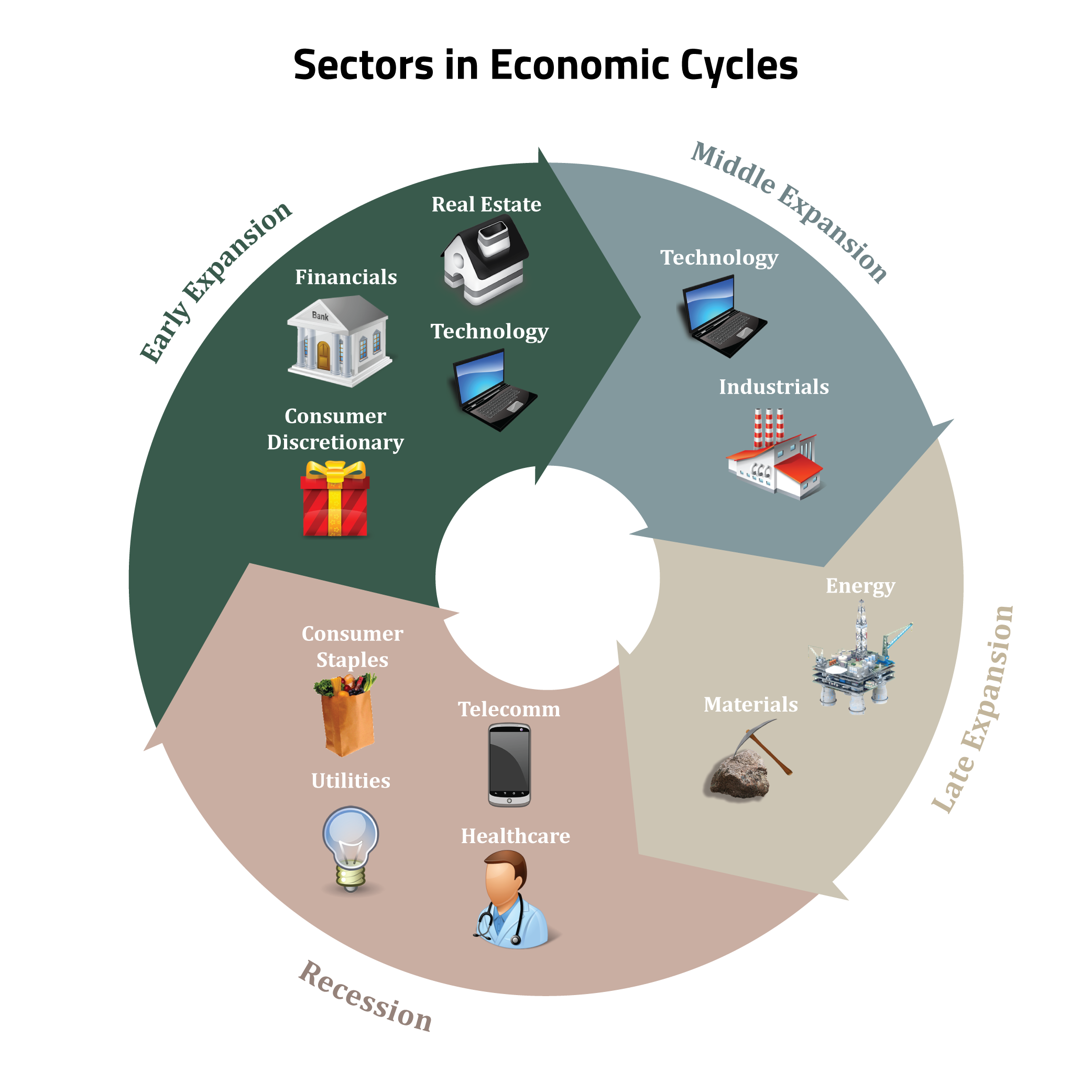Hey there, friend! Let’s dive into something incredibly important but often overlooked in our everyday conversations: sectors. Whether you’re an aspiring entrepreneur, a curious student, or someone who just wants to understand how the world operates, grasping the concept of sectors is like unlocking a secret code to how economies and industries function. It’s not just about business; it’s about understanding where we fit in the grand scheme of things. So, buckle up because we’re about to embark on a fascinating journey!
Sectors are the building blocks of any economy, and they define the way we produce, consume, and interact with goods and services. Think of them as the different departments in a massive corporation—each one has its own role, but they all work together to keep the machine running smoothly. But here’s the kicker: sectors aren’t just static categories. They evolve, adapt, and sometimes even collide, creating entirely new industries and opportunities. Intriguing, right?
Before we dive deeper, let me drop a little teaser. By the end of this article, you’ll not only know what sectors are but also how they influence your life, career, and even your wallet. We’ll explore everything from the types of sectors to their impact on global markets. So, if you’ve ever wondered why some industries boom while others fade away, or how to identify the next big thing, you’re in the right place. Let’s get started!
- How Can I Access My Raspberry Pi Anywhere Without Breaking A Sweat
- Lily Phillips Video The Rising Star You Need To Know
What Exactly Are Sectors?
Alright, let’s break it down. In the simplest terms, a sector is a part of the economy where businesses share the same or a related product or service. Think of it as a category that groups together companies with similar objectives or production methods. For instance, the tech sector includes companies like Apple, Google, and Microsoft, while the healthcare sector encompasses hospitals, pharmaceutical companies, and medical device manufacturers. But here’s the thing: sectors aren’t just limited to big corporations. Even small businesses and startups fall into specific sectors based on what they do.
Why Are Sectors Important?
Sectors play a crucial role in shaping economies and influencing markets. They help investors, businesses, and policymakers make informed decisions by providing a clear picture of where resources are being allocated and where opportunities lie. For example, during the pandemic, the healthcare sector surged as demand for medical supplies and services skyrocketed, while the travel sector took a massive hit. Understanding these dynamics can help you navigate both personal and professional challenges.
Types of Sectors: A Closer Look
Now that we’ve established what sectors are, let’s take a closer look at the main types. There are several ways to classify sectors, but for simplicity, we’ll focus on the most commonly used categories:
- Robert Hardy The Unyielding Spirit Behind One Of Britains Greatest Legends
- Astrid Nelsia The Rising Star You Need To Know
- Primary Sector: This includes activities related to extracting and harvesting natural resources, such as agriculture, mining, and fishing. Think of it as the foundation of all other sectors.
- Secondary Sector: Here’s where raw materials are transformed into finished products. Manufacturing, construction, and utilities fall under this category.
- Tertiary Sector: Also known as the service sector, this includes industries that provide services rather than tangible goods, like finance, education, and healthcare.
- Quaternary Sector: This relatively new category focuses on information-based activities, such as research, technology, and consulting.
- Quinary Sector: Often considered the top tier, this includes high-level decision-making roles in government, academia, and corporate leadership.
Each of these sectors plays a unique role in the economy, and their interactions create the complex web of industries we see today. But here’s the cool part: as technology advances and new challenges arise, these sectors often overlap and merge, giving rise to entirely new opportunities.
How Sectors Impact Your Life
You might be wondering, "How does all this affect me?" Well, sectors influence almost every aspect of your life, from the job you choose to the products you buy. For instance, if you’re considering a career in renewable energy, you’re likely entering the primary or secondary sector, depending on whether you’re focused on resource extraction or manufacturing. On the other hand, if you’re pursuing a career in digital marketing, you’re diving headfirst into the tertiary and quaternary sectors.
Job Opportunities Across Sectors
Each sector offers a unique set of job opportunities, and understanding them can help you make better career choices. Here’s a quick breakdown:
- Primary Sector: Jobs in agriculture, forestry, and mining often require hands-on skills and a deep understanding of natural resources.
- Secondary Sector: Manufacturing and construction roles demand technical expertise and a knack for problem-solving.
- Tertiary Sector: Service-oriented jobs in finance, healthcare, and education require strong interpersonal skills and a customer-focused mindset.
- Quaternary Sector: Information-based roles in tech, research, and consulting call for analytical thinking and adaptability.
- Quinary Sector: Leadership positions in government and corporate settings demand strategic vision and decision-making skills.
As you can see, each sector caters to different skill sets and interests, making it easier for you to find a career path that aligns with your passions and strengths.
The Role of Sectors in Global Markets
Sectors don’t operate in isolation; they interact with each other on a global scale, influencing trade, investment, and economic growth. For example, a breakthrough in renewable energy technology in the primary sector can lead to innovations in the secondary sector, creating new products that reshape the tertiary and quaternary sectors. It’s a domino effect that ripples across the entire economy.
Key Drivers of Sector Growth
Several factors drive sector growth, including technological advancements, consumer demand, and government policies. For instance, the rise of e-commerce has transformed the retail sector, while government incentives for green energy have boosted the renewable energy sector. Understanding these drivers can help you anticipate trends and make smarter investment decisions.
Challenges Facing Modern Sectors
While sectors offer incredible opportunities, they also face significant challenges. From environmental concerns to economic uncertainties, each sector must navigate its own set of obstacles. For example, the manufacturing sector grapples with issues like automation and labor shortages, while the healthcare sector struggles with rising costs and accessibility.
How Technology is Reshaping Sectors
Technology is arguably the biggest game-changer in the world of sectors. Innovations like artificial intelligence, blockchain, and the Internet of Things (IoT) are revolutionizing industries across the board. Take the financial sector, for instance. The rise of fintech has disrupted traditional banking models, making financial services more accessible and efficient. Similarly, advancements in biotechnology are transforming healthcare, offering new treatments and therapies that were once unimaginable.
Investing in Sectors: A Smart Move?
If you’re thinking about investing in sectors, you’re not alone. Many investors focus on sector-specific funds or exchange-traded funds (ETFs) to diversify their portfolios. But before you jump in, it’s important to do your homework. Each sector has its own risks and rewards, and understanding them can help you make informed decisions.
Popular Sector ETFs to Watch
Here are a few popular sector ETFs that investors often consider:
- Technology Sector ETFs: Focused on companies like Apple, Microsoft, and Tesla.
- Healthcare Sector ETFs: Includes pharmaceutical giants and biotech firms.
- Energy Sector ETFs: Targets companies involved in oil, gas, and renewable energy.
- Consumer Goods Sector ETFs: Features companies producing everyday products like food, beverages, and electronics.
Remember, investing in sectors requires a long-term perspective and a solid understanding of market trends. Don’t be afraid to consult with a financial advisor if you’re unsure where to start.
Future Trends in Sectors
So, what does the future hold for sectors? One thing’s for sure: it’s going to be exciting. As technology continues to evolve and global challenges intensify, we can expect to see significant shifts in how sectors operate. For example, the rise of remote work is transforming the service sector, while advancements in AI are reshaping manufacturing and logistics.
Emerging Sectors to Watch
Here are a few emerging sectors that could shape the future:
- Sustainable Energy: As the world shifts toward greener solutions, this sector is set to explode.
- Biotechnology: With breakthroughs in gene editing and personalized medicine, biotech is poised for growth.
- Space Exploration: Companies like SpaceX and Blue Origin are paving the way for a new era of space commerce.
- Cybersecurity: As digital threats increase, the demand for cybersecurity solutions will skyrocket.
These sectors represent just a glimpse of what’s to come. The possibilities are endless, and staying informed is key to capitalizing on these opportunities.
Conclusion: Embrace the Sector Revolution
Wow, we’ve covered a lot of ground! From understanding what sectors are to exploring their impact on global markets, you now have a solid foundation for navigating the complex world of industries. Remember, sectors aren’t just about business; they’re about people, innovation, and progress. By staying informed and adaptable, you can position yourself to thrive in this ever-changing landscape.
So, here’s my challenge to you: take what you’ve learned and apply it to your life. Whether you’re considering a new career, exploring investment opportunities, or simply trying to understand the world around you, sectors hold the key to unlocking new possibilities. Share your thoughts in the comments below, and don’t forget to check out our other articles for more insights. Let’s keep the conversation going!
Table of Contents:
- What Exactly Are Sectors?
- Why Are Sectors Important?
- Types of Sectors: A Closer Look
- How Sectors Impact Your Life
- Job Opportunities Across Sectors
- The Role of Sectors in Global Markets
- Key Drivers of Sector Growth
- Challenges Facing Modern Sectors
- How Technology is Reshaping Sectors
- Investing in Sectors: A Smart Move?
- Future Trends in Sectors



Detail Author:
- Name : Clotilde Stroman
- Username : gia81
- Email : dbalistreri@yahoo.com
- Birthdate : 2001-10-07
- Address : 18960 Freddie Green West Jaiden, ND 94497
- Phone : +1-610-664-8306
- Company : Towne-Zemlak
- Job : Network Admin OR Computer Systems Administrator
- Bio : Enim odio aliquam et cupiditate. Sunt ad eveniet voluptatem molestias eum optio deleniti. Harum nesciunt enim adipisci est nulla sed sint deserunt.
Socials
tiktok:
- url : https://tiktok.com/@corkerym
- username : corkerym
- bio : Unde delectus rerum esse enim.
- followers : 288
- following : 2378
twitter:
- url : https://twitter.com/corkerym
- username : corkerym
- bio : Esse totam ratione ducimus sequi et harum. Et et enim eius nihil eum magnam sapiente. Perferendis consequatur autem quibusdam sunt quis.
- followers : 2464
- following : 2317
linkedin:
- url : https://linkedin.com/in/marisol_official
- username : marisol_official
- bio : Eos nulla id magni numquam ut deleniti.
- followers : 1089
- following : 539